 Picogen
VS
Picogen
VS
 PhotoSonic
PhotoSonic
Picogen
Picogen leverages advanced Artificial Intelligence to enable users to generate unique images directly from text descriptions. This platform provides a straightforward way to create captivating visuals by simply inputting a desired scene, object, or concept in text form. The AI interprets the prompt and produces a corresponding image, offering a powerful tool for visual content creation.
Designed with ease of use in mind, Picogen features an intuitive interface suitable for users of all technical backgrounds. It supports various customization options, including different artistic styles and aspect ratios, allowing for tailored image outputs. The tool aims to streamline the creative process, providing fast generation speeds and high-resolution options suitable for both digital and print applications.
PhotoSonic
PhotoSonic functions as an advanced image and art generator, converting textual prompts into visual representations through sophisticated AI algorithms. Users can generate unique, royalty-free images by simply describing the desired visual output. The platform leverages cutting-edge artificial intelligence to analyze text, extracting key themes, emotions, and visual elements to produce artwork.
The tool offers various artistic styles and allows for customization of parameters like color palette, style, and composition. It is designed to be intuitive, enabling users without prior artistic skills to create images. PhotoSonic's AI is trained on diverse artistic datasets and continuously learns, aiming to provide high-quality results for generating concept art, visualizing ideas, or creating personalized visuals.
Pricing
Picogen Pricing
Picogen offers Freemium pricing with plans starting from $15 per month .
PhotoSonic Pricing
PhotoSonic offers Freemium pricing with plans starting from $19 per month .
Features
Picogen
- AI-Powered Generation: Utilizes state-of-the-art AI models for text-to-image conversion.
- High Resolution Output: Provides images suitable for web and print.
- Customization Options: Allows fine-tuning with style controls, aspect ratios, etc.
- Fast Processing: Delivers quick image generation for rapid iteration.
- Easy to Use Interface: Simple platform accessible to all skill levels.
- Variety of Styles: Supports photorealistic, cartoon, painting, and other artistic styles.
PhotoSonic
- Text-to-Image Generation: Converts textual descriptions into unique images using AI.
- Advanced AI Algorithms: Utilizes cutting-edge AI for high-quality image generation.
- Artistic Style Variety: Offers a wide range of art styles and genres (e.g., Renaissance, Impressionism, Pop Art).
- Emotional Understanding: Interprets emotions and sentiments from text via natural language processing to infuse into the artwork.
- Customization Options: Allows users to adjust parameters such as color palette, style, and composition.
- Attention to Detail: Incorporates textual cues and context meaningfully into the generated artwork.
Use Cases
Picogen Use Cases
- Creating unique blog post illustrations.
- Generating marketing materials and ad creatives.
- Designing social media content visuals.
- Visualizing concepts for presentations or projects.
- Producing artwork and digital art.
- Quickly prototyping visual ideas.
PhotoSonic Use Cases
- Artistic Expression: Generating unique artworks from poetry, quotes, or original writings.
- Design and Marketing: Creating visually appealing content for advertisements, social media posts, and promotional materials.
- Education and Learning: Developing visually stimulating materials to aid comprehension and engagement.
- Personalized Gifts and Decor: Designing custom artworks based on meaningful text for gifts or personal spaces.
- Concept Art and Visualization: Generating visual representations for narratives, scripts, or creative ideas.
FAQs
Picogen FAQs
-
What kind of images can I generate?
You can generate a wide variety of images based on your text descriptions, including objects, scenes, characters, abstract art, and more. The quality and relevance depend on the detail of your prompt and the capabilities of the underlying AI model. -
How detailed should my text prompts be?
More detailed prompts generally lead to better results. Include specifics about the subject, setting, style, colors, and mood you want to convey. Experimenting with different phrasing can also help. -
Who owns the rights to the generated images?
Generally, for paid plans, you own the rights to the images you generate and can use them commercially. Free plan usage might have some restrictions. Please refer to our terms of service for specific details on image rights and usage. -
Can I use the generated images for commercial purposes?
Yes, images generated under our Pro and Enterprise plans are typically available for commercial use. Free plan images may have limitations. Always check our terms of service for the most current usage rights. -
Is there an API available?
Yes, API access is available under our Enterprise plan. Please contact sales for more information.
PhotoSonic FAQs
-
What file formats does PhotoSonic support for image downloads?
PhotoSonic supports downloading images in popular formats like JPEG and PNG. -
Can images generated by PhotoSonic be used for commercial purposes?
Yes, images created with PhotoSonic are royalty-free and can be used for commercial projects without restrictions. -
What kind of customer support does PhotoSonic offer?
PhotoSonic provides round-the-clock customer support to assist users. -
Does PhotoSonic offer any templates for specific industries?
Yes, PhotoSonic provides templates suitable for various industries, making it easy to create content tailored to your niche. -
Is PhotoSonic a web-based tool?
Yes, PhotoSonic is a web-based tool accessible from any device with an internet connection.
Uptime Monitor
Uptime Monitor
Average Uptime
99.8%
Average Response Time
1411.86 ms
Last 30 Days
Uptime Monitor
Average Uptime
0%
Average Response Time
0 ms
Last 30 Days
Picogen
PhotoSonic
More Comparisons:
-
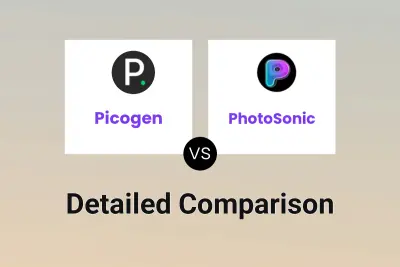
Picogen vs PhotoSonic Detailed comparison features, price
ComparisonView details → -
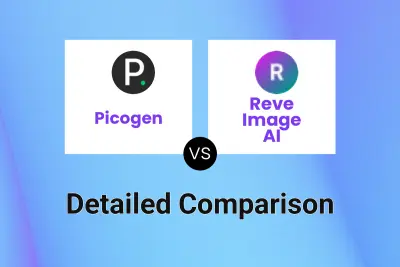
Picogen vs Reve Image AI Detailed comparison features, price
ComparisonView details → -
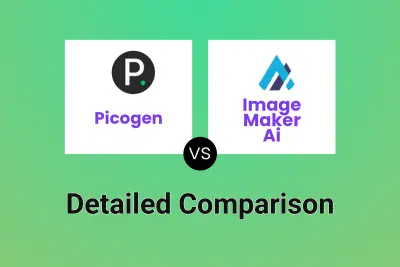
Picogen vs Image Maker Ai Detailed comparison features, price
ComparisonView details → -
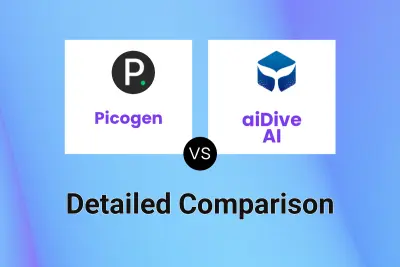
Picogen vs aiDive AI Detailed comparison features, price
ComparisonView details → -
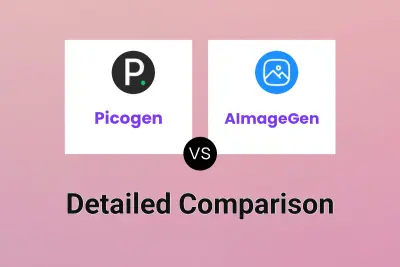
Picogen vs AImageGen Detailed comparison features, price
ComparisonView details → -
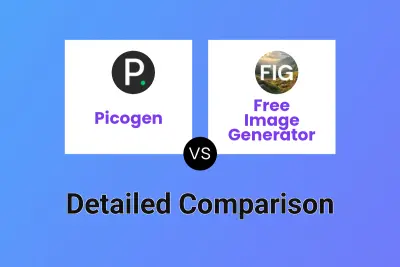
Picogen vs Free Image Generator Detailed comparison features, price
ComparisonView details → -

Picogen vs Zapimg AI Detailed comparison features, price
ComparisonView details → -
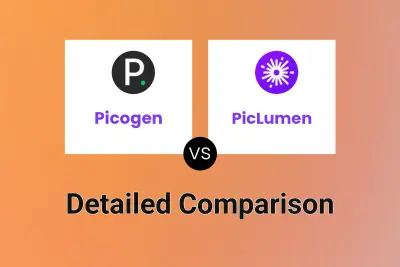
Picogen vs PicLumen Detailed comparison features, price
ComparisonView details →
Didn't find tool you were looking for?